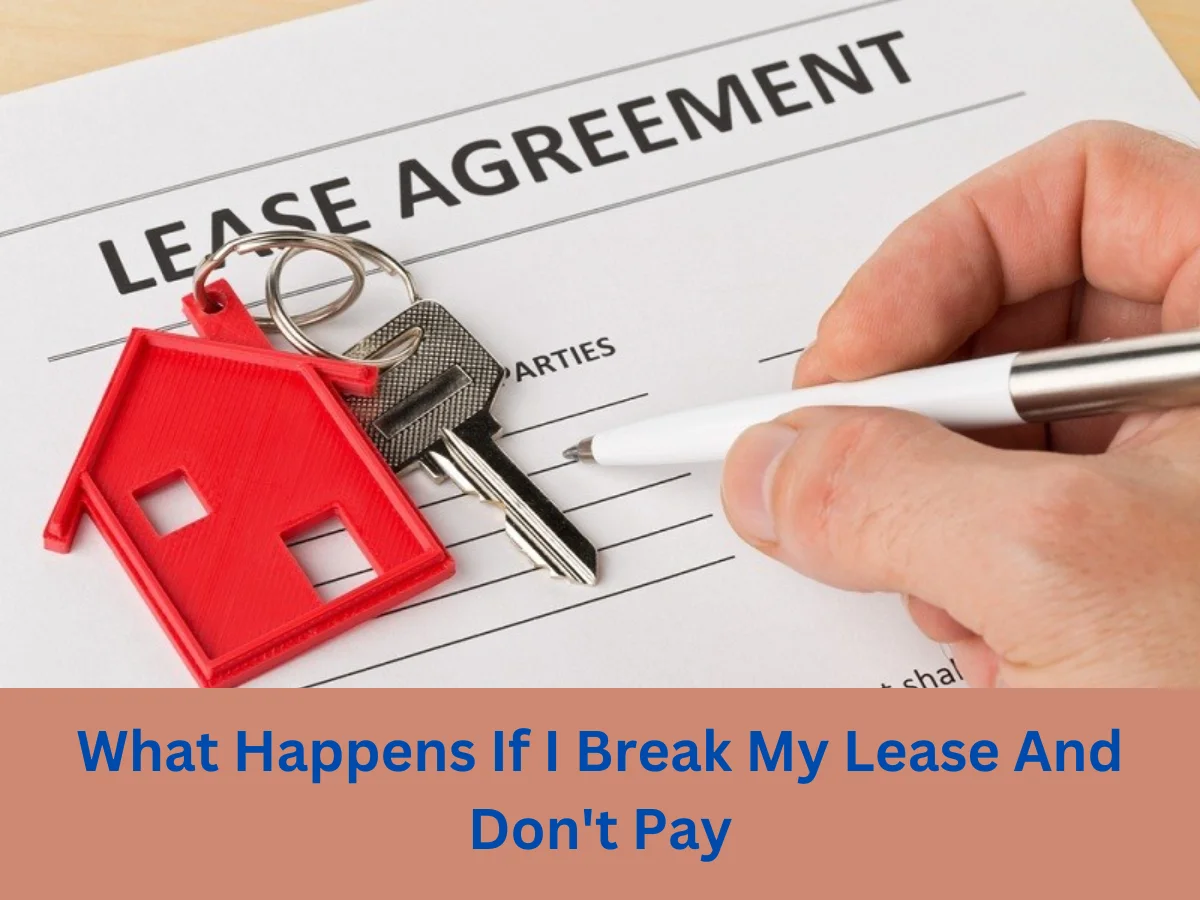Introduction
Renting a property comes with responsibilities and obligations, one of which is abiding by the terms of the lease agreement. However, circumstances can change, leading to situations where tenants may need to break their lease. While lease agreements are legally binding, life’s uncertainties can sometimes make it challenging to fulfill them. This article aims to shed light on what happens if you break your lease and don’t pay, outlining the potential consequences and providing guidance on navigating such situations.
Breaking a Lease: Legal and Financial Implications
A lease agreement is a legal contract that outlines the terms and conditions of renting a property. Breaking a lease before its agreed-upon end date can have both legal and financial implications. Common reasons for breaking a lease include job relocations, family emergencies, or changes in financial circumstances. However, tenants should be aware that breaking a lease without proper justification can lead to penalties.
Potential Consequences of Not Paying After Breaking a Lease
If you break your lease and fail to pay the associated fees or remaining rent, several potential consequences could arise:
- Debt Collection: Landlords may engage a debt collection agency to recover the unpaid rent or fees.
- Negative Credit Impact: Unpaid debts can negatively impact your credit score, making it harder to secure loans or credit in the future.
- Legal Action: Landlords may take legal action to recover the owed amounts. This could result in a court judgment against you.
- Blacklisting: Some landlords or property management companies share information about unpaid rent with tenant screening databases, making it challenging to rent in the future.
- Withholding Security Deposit: Landlords might withhold your security deposit to cover unpaid rent or fees.
Steps to Take When Facing Lease Termination
If you find yourself needing to break your lease, consider taking the following steps to mitigate potential negative outcomes:
- Review the Lease Agreement: Carefully review the terms of your lease agreement to understand the penalties for breaking the lease.
- Communicate: Notify your landlord as soon as you know you need to break the lease. Open communication can lead to a more favorable resolution.
- Negotiate: Discuss your situation with your landlord and explore the possibility of reaching a compromise, such as finding a replacement tenant.
- Put It in Writing: Provide written notice of your intent to terminate the lease, following any specific notice requirements outlined in the agreement.
Exploring Alternatives to Breaking a Lease
To avoid the consequences of breaking a lease, consider the following alternatives:
- Subleasing: If your lease agreement allows, subleasing the property to another tenant can help cover your rent obligations.
- Early Termination Clause: Check if your lease agreement includes an early termination clause that outlines conditions under which you can break the lease without severe penalties.
- Negotiation: Openly discuss your situation with your landlord to explore possible solutions.
Conclusion
Breaking a lease and not paying the associated fees or rent can lead to various consequences, including financial setbacks and damage to your credit score. It’s essential to approach lease termination with careful consideration, open communication, and a willingness to explore alternatives. By understanding your rights and responsibilities as a tenant, you can navigate this challenging situation and make informed decisions that minimize negative impacts on your financial and rental history.
FAQs About Breaking a Lease and Non-Payment
Q1: Can my landlord sue me for breaking the lease?
A1: Yes, landlords can take legal action to recover unpaid rent or fees resulting from breaking a lease.
Q2: Will breaking a lease affect my credit score?
A2: Unpaid debts, including unpaid rent, can negatively impact your credit score.
Q3: Can I negotiate with my landlord to reduce penalties?
A3: Yes, negotiating with your landlord is advisable to potentially reduce penalties.
Q4: Can I break my lease if my safety is at risk?
A4: In some cases, lease agreements allow for early termination due to safety concerns. Consult your lease agreement and local laws.
Q5: What happens if I move out without notice?
A5: Moving out without proper notice may result in additional penalties and legal action.
